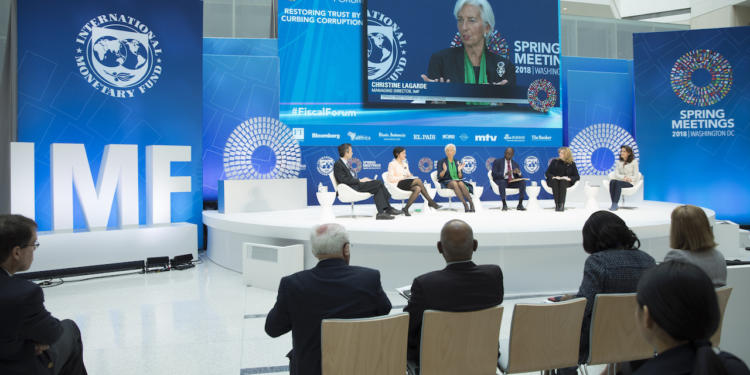International Monetary Fund (IMF), the global lender has termed India as the world’s fastest-growing large economy. The details about the Indian economy and global economic outlook will be revealed in the World Economic Outlook (WEO) survey report which is to be released by next month. “India has of course been one of the world’s fastest-growing large economies of late, with growth averaging about seven percent over the past five years,” said IMF communications director Gerry Rice on India’s economic development under Modi government. “Important reforms have been implemented and we feel more reforms are needed to sustain this high growth, including to harness the demographic dividend opportunity, which India has,” he added.
IMF’s WEO survey report will be released by next month ahead of the annual meeting with World Bank, the other Bretton Woods Institution. This is the first report under the newly appointed Indian American IMF chief economist- Gita Gopinath. “The WEO will go into more details. But amongst the policy priorities, we would include accelerate the cleanup of banks and corporate balance sheets, continue fiscal consolidation, both at center and state levels, and broadly maintain the reform momentum in terms of structural reforms in factor markets, labour, land reforms and further enhancing the business climate to achieve faster and more inclusive growth,” said Rice.
Earlier Maurice Obstfeld, the outgoing chief economist of IMF has praised Modi government for solid economic growth and fundamental economic reforms. “India under the government of Prime Minister Narendra Modi has carried out some really fundamental reforms. These include the Goods and Services Tax (GST), the Insolvency and Bankruptcy Code…A lot of what they have done on financial inclusion has been really important,” Obstfeld said in an interaction with the media. About the economic growth under the last four and half years of Modi government, Obstfeld said, “Growth performance has been very solid”.
The policy analysts, economists and corporate houses around the globe have given very positive reviews about the economic policies of the Modi government. Two most important economic reforms have been in the fields of indirect taxation and insolvency process. The GST was waiting for implementation in the policy corridors for almost three decades as the previous governments could not bring all the stakeholders together to implement the uniform indirect taxation. But the Modi government has been able to build consensus for the implementation of GST in one of the most complex markets around the world. GST has been helpful in increasing the number of indirect as well as direct taxpayers. Top economists have predicted that GST will improve the GDP growth of the country by 1-2 percent.
Insolvency and Bankruptcy Code (IBC) has transformed the political economy of the country from ‘patronage based economy’ to ‘rule-based capitalist economy’. Earlier, a huge pile of bad loans was generated termed as ‘twin balance sheet problem’ in Economic Survey. The banks in the country could not lend due to capital shortage and companies did not apply for loans because they were not able to pay back the money borrowed earlier. As bad loans resolution under IBC gained momentum, the Non-Performing Assets (NPAs) has declined over last two quarters of this fiscal year while the credit growth is back on track.
























